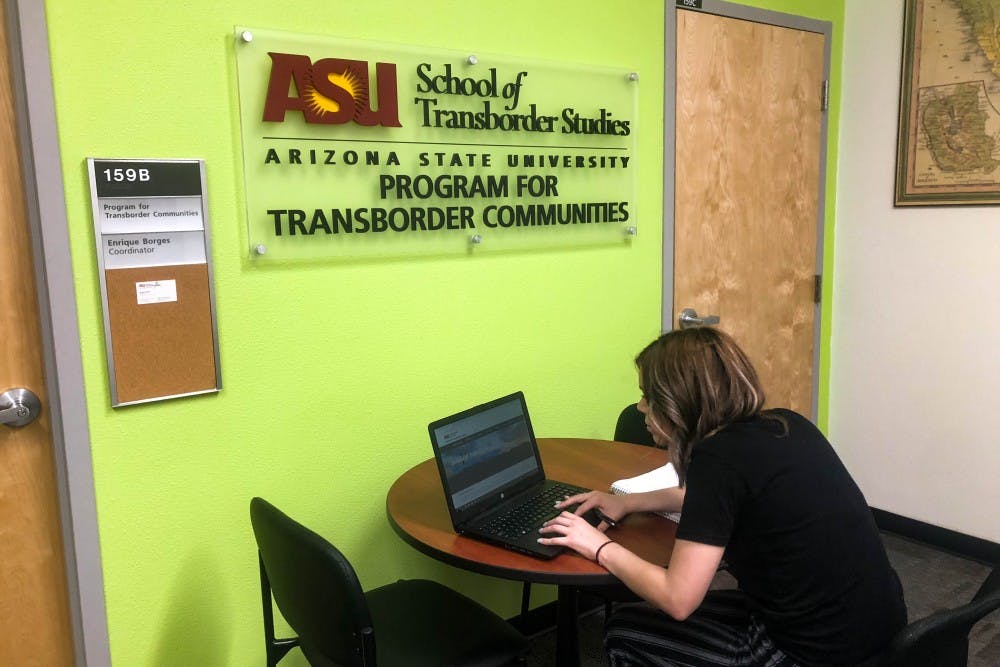As one of the largest universities in the country, ASU prides itself on its diversity and focus on inclusivity. This is clear by its decision to have a specialized Office of Inclusion and Community Engagement.
Due to the geographical location and demographics of the region, it is troubling that the largest branch of the University's statewide campuses, ASU Tempe, is not currently certified as a Hispanic Serving Institution by the Hispanic Association of Colleges and Universities.
According to the HACU, "Hispanic-Serving Institutions are defined in Title V of the Higher Education Act as not-for-profit institutions of higher learning with a full-time equivalent undergraduate student enrollment that is at least 25 percent Hispanic." These are requirements that ASU Tempe does not meet.
Although ASU's downtown Phoenix and West campuses being on the list is quite the honor, ASU Tempe not being on the list should be concerning to both the institution and the Hispanic student body.
One of the student programs that is leading the efforts in reaching out to Hispanic students is the ASU CAMP Scholars program, which recruits Hispanic students from farm-working families.
Edith Velez Bermudez, the program coordinator for the ASU CAMP Scholars program, said that the program began three years ago and has a presence in colleges across the nation.
“This is the first time that CAMP has had a program at ASU which is odd because Arizona has a large migrant population," Velez Bermudez said.
However, it is not just these programs that are taking an initiative in reaching out to their Hispanic community.
“ASU as a whole as part of their mission they want to welcome Hispanic students or Latinx students.” Bermúdez said regarding ASU President, Michael Crow's, statement on DACA.
In September 2017, Crow decided to release a personal statement addressed to all DACA students about retaining the institution’s commitment to them, regardless of the fate of the DACA program.
Even though the institution is attempting to be more inclusive, ASU should look into why more Hispanic students are attracted to the West and downtown Phoenix campuses as opposed to the Tempe campus, as reflective by the campuses' certification.
This can allow the programs located on the Tempe campus to work on attempting to cater its programs towards Hispanic students of all backgrounds.
There are other ways in which ASU can better cater to its Hispanic and Latinx community, and many students share both of those identities. One of the ways is by letting go of outdated terminology and phrases such as “Latino/Latina” and focusing on using more inclusive and above all, modern terminology such as the gender-neutral “Latinx.”
An example of this is the Morrison Institute Latino Public Policy Center at ASU. Although their work is vital to the advancement of Latinx issues, by implementing an exclusive and outdated term within its title, it may deter prospective students who don't identify with the term “Latino."
However, other public universities such as UC Berkley and California State University San Bernardino, do include the term "Latinx" in its center's title.
ASU organizations and groups using inclusive terminology as opposed to outdated phrases, reflects to the Hispanic and Latinx student body that they are aware of the social progress that is being made regarding Latinx and Hispanic students.
ASU is not failing to serve their Hispanic and Latinx community by any means, but there is no reason why ASU's Tempe campus should not also hold the distinct recognition of being a Hispanic Serving Institution.
This lack of recognition may actually be a reflection of serious faults in the way that the institution markets its Tempe programs to the Hispanic community.
This is a concern that the institution, and not just the student-based programs, should address.
Reach the columnist at jguzma19@asu.edu or follow @JennyGuzmanAZ on Twitter.
Editor’s note: The opinions presented in this column are the author’s and do not imply any endorsement from The State Press or its editors.
Want to join the conversation? Send an email to opiniondesk.statepress@gmail.com. Keep letters under 500 words and be sure to include your university affiliation. Anonymity will not be granted.
Like The State Press on Facebook and follow @statepress on Twitter.




